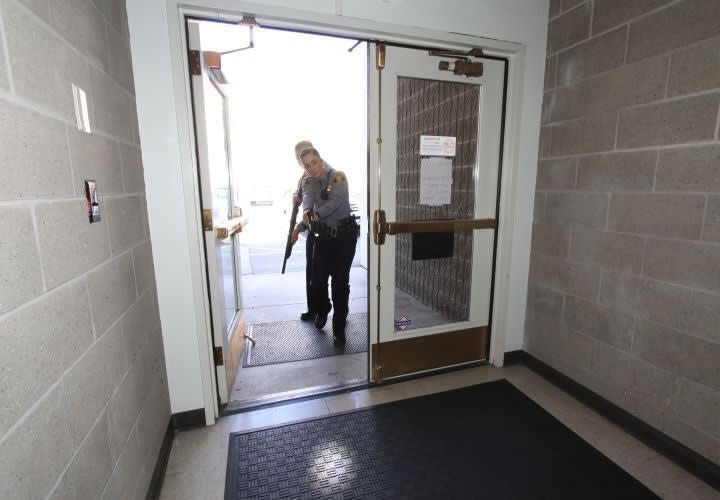The Safariland Training Group announced they have put together a Female Officer Survival Training Tactics course. This news is fantastic!
As women become a larger part of the law enforcement community, training that meets the needs of the female officer will be required. The area of defensive tactics is no exception.
Defensive tactics should be taught to female officers with the intent to aid in overcoming intrinsic problems that females face. It's in a woman's DNA to nurture, to be the more sympathetic of the sexes. It causes us to be more caring and not want to use violence against another. Does that mean women are incapable of using force to defend themselves or others? Absolutely not!
What it does mean is training has to begin at a basic level within our thought process.
Those of you who have attended the Calibre Press Street Survival school may know it as the 5%'er attitude. It's a winning mindset—a mental process that you will win the fight and go home to your loved ones. Even Calibre Press has recognized the need for specialized training and created a Street Survival for Women.
Female law enforcement training raises a few questions.
Is teaching a winning mind-set enough? Can we teach officers to recognize the warning signs of a potentially dangerous situation? Isn't it better to avoid the fight, rather than worry about surviving it? Female officers are well known for their ability to communicate. Talking our way out of a situation could be the first step toward winning the fight.
We're able to finagle our way out of situations that males oftentimes cannot. What if talking doesn't work; can you handle a physical altercation? What are your options and what are you trained to do? Will you have to punch and kick your way out of it? Or are other options available? As a woman, can you justify moving to a higher level of force sooner than your male counterparts?
One major problem I've encountered in defensive tactics training is that it typically doesn't take into account the "smaller" officer. Oftentimes it's geared toward being the tougher fighter and "kicking ass." I call this the "testosterone gets in the way" mentality. I'm not implying that female officers are incapable of fighting or that they should give up in a fight—never give up!
Are there other ways to win?
For example, when I teach ground fighting, I cover techniques to gain control of a suspect both from the guard and mount positions. I also teach other options. What can you do if you're the female officer on the ground with a large male suspect on top of you? Clearly, this is the last place on earth any officer—male or female—wants to be.
Can you win this fight? Hell yes!
Do you win it by flipping the guy off you with a well-orchestrated MMA move? Maybe. Or is there shame in using techniques to wrap up the suspect, protect yourself and your vital organs from further attack, and hold on for the ride until back-up arrives? I don't think so.
Do you have a mind-set to understand the inherent danger to you in this situation, and do you go to a different level of force. Have you thought of being in this position? Where are your weapons? Can you access them? If not, should you consider moving or carrying another weapon in a location that you can access? After all, the goal is to win!
Ultimately, we should be taught and provided an arsenal of techniques that allow us to achieve that goal.













